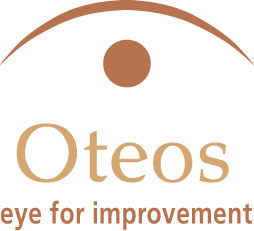Have you always wanted to know how to become a great leader? For many years people assumed that effective leaders were born with certain traits. Therefore, the majority of research focused on trying to answer the question “what is an effective leader”? Maybe it was height, physical strength, or perhaps dominance or intelligence. Researchers like Stogdill (1974) and Lord a.o. (1986) demonstrated conflicting outcomes proving that there was no such thing as a shared set of traits as a predictive factor for effective leadership. Researchers then started to focus on the leader’s behavior, showing what they did became more important than who they were. I can already hear you “here’s hoping” because that means that anyone can learn how to become a good leader.
That, in fact, is very true! If you look at the underlying meaning of the word in a dictionary, it means “a person who leads”. There are so many types of leadership. And the basic foundation of leadership is the ability to influence. But what makes a leader a great leader? Throughout the years, many leadership styles have been reviewed. Let’s go through some of the most important ones before I come to the secret of great leadership.
Effective Leadership
Models that try to define leadership focus on the leader’s behavior. Researchers approach leadership by task focused, and person / relationship focused activities. Blake and Mouton’s Managerial Grid (Blake and Mouton, 1964) is one of the many models that can be used to define types of leadership and what’s most effective, including that “a participating way of leadership is the most effective.” But what does that mean? It means that an effective leader should be able to:
- delegate decisions
- give employees a chance to develop
- communicate accurately with all people in the organization.
Situational Leadership
Let’s say a participating style is the best way to lead your employees. Would you be able to handle any situation holding on to just that style? I think the answer to that is no! Every situation is different. What does your team look like, how are the dynamics in it, what’s your relationship with your team, what’s the environment, what’s the task, and who are you as a person? Those are just a number of the essential factors that can have a significant influence on the effectiveness of a leadership style. Leadership seems to be precision work.
The model for situational leadership (Hersey & Blanchard, 1992) suggests that the best leaders need to be flexible in the style they choose, adapting to the stage of maturity of their staff members. Task maturity is very much a matter of wanting and being able to, in which confidence is an essential factor. To make situational leadership a success, leaders really need to know their staff members and how they work under a variety of circumstances and what they need to get the job done.
Charismatic Leadership
The most modern approach to leadership is the one focusing on the emotional effects of leadership behavior and the appreciation of staff members. Leaders need to share their vision and motivate their employees passionately, making sure they truly feel connected with the organization and its targets. Those that reach this state of leadership are referred to as charismatic leaders, a catching conclusion defined by Bloemers and Hagendoorn (2006).
Great Leadership
Becoming a great leader is very much about who you are and, more importantly, about who you want to be! Great leadership means giving your very best in every situation and having an eye for individual needs and achievements in your team under all circumstances! Although to remain successful, you, at times, have to be hard and make decisions that won’t be easy and that affect your team. You can still do it with respect and empathy. Empathy is one of the essential skills to possess as a leader. It’s not just a matter of being cold or warm; it is the ability to understand another person’s experience, perspective, and feelings.
If I have to be honest, aside from the great enthusiasm, doing my work with empathy brings me closest to my definition of great leadership. What’s your secret to great leadership?

